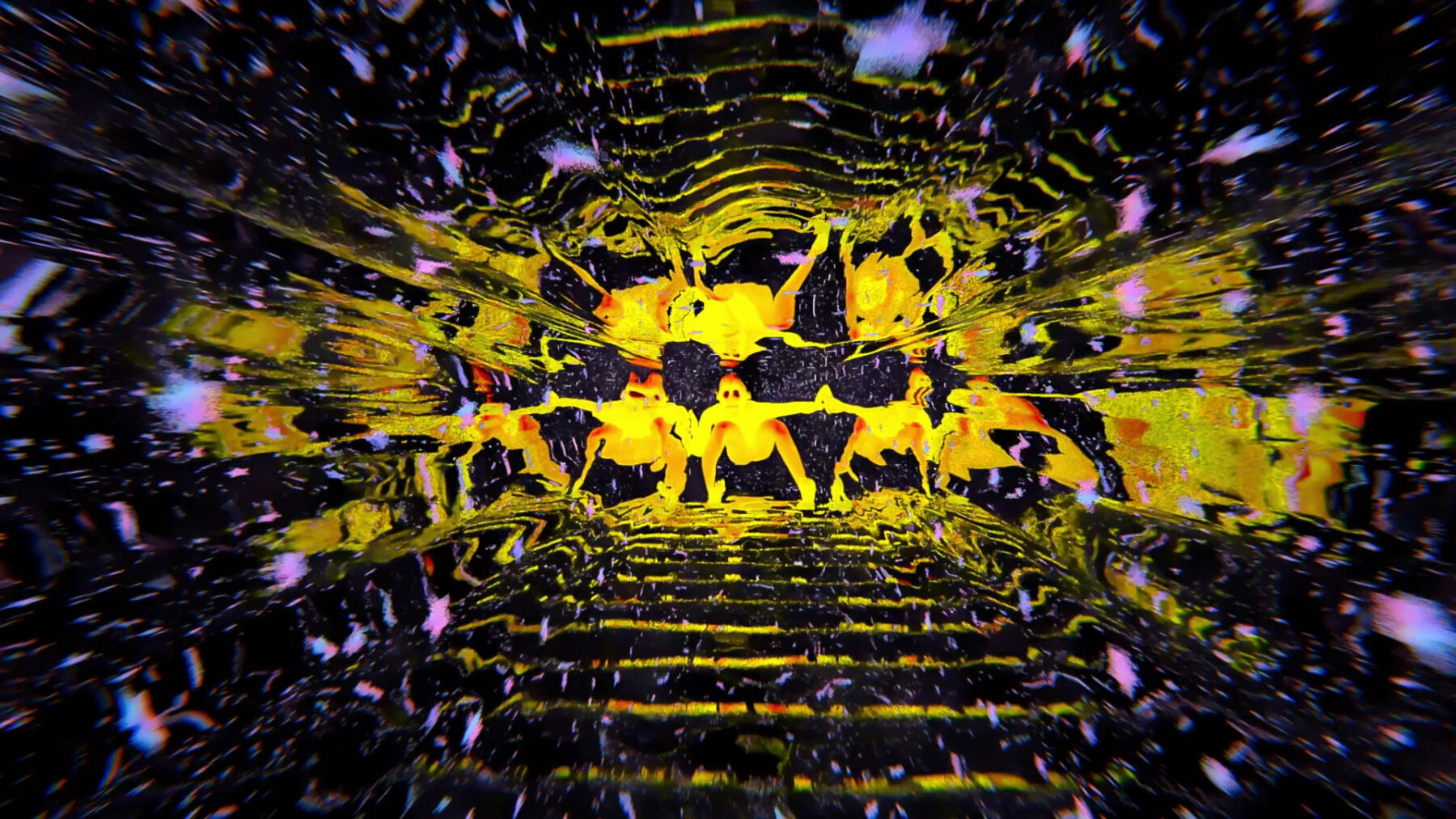Interview by Daniela Silva
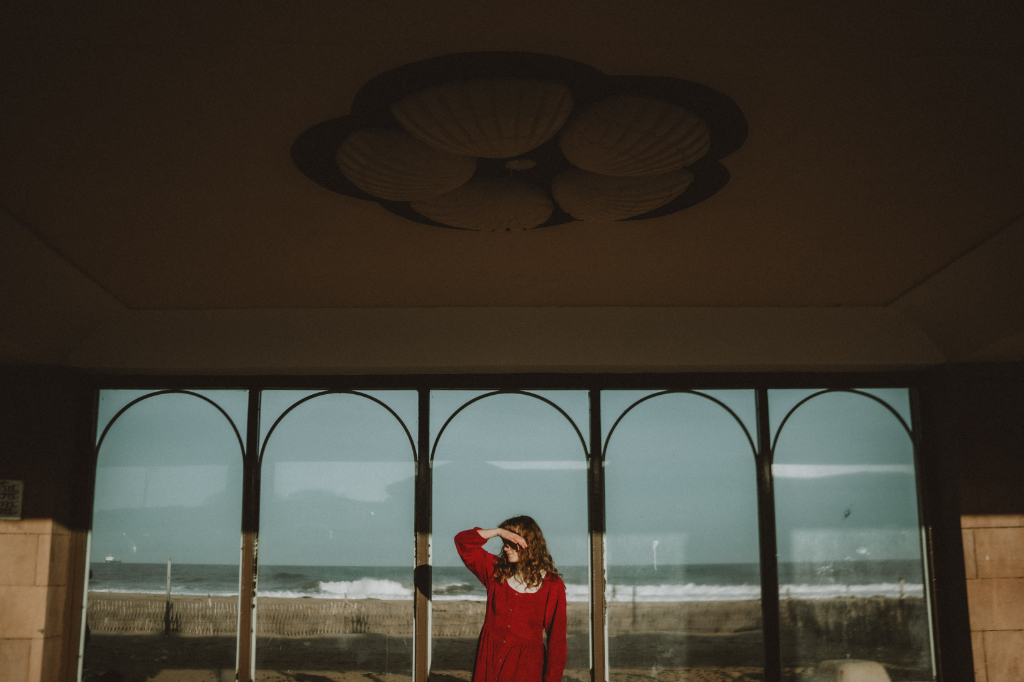
In the heart of the digital age, where the boundaries between the real and the imaginary blur, the realm of folk music finds an audacious explorer in Jayne Dent, the founding member of Me Lost Me. Her latest album, RPG, arrived last July 7 via Upset The Rhythm, beckons us into a fascinating domain where storytelling, worldbuilding, and musical innovation intertwine. This novel work invites listeners to traverse through an enigmatic soundscape fueled by the enduring spirit of human creativity.
With her unique approach to folk music, Jayne Dent bridges the ancient and the futuristic, leading us into a realm where the archaic narrations of folktales meet the endless potentials of the digital age. RPG isn’t merely an album; it’s an ode to the quintessentially human urge to narrate stories, fabricate worlds, and explore the far reaches of imagination. Through a medley of folk, art pop, noise, ambient, and improvised music, Dent crafts a narrative driven by simplicity yet imbued with profound resonances. Her unpretentious yet evocative lyrics glide over a melodic stream of synths, clarinet, and double bass, offering a surreal yet intimate experience.
The album delves into the core theme of creation’s joy, epitomised in its final track, Science And Art. The ethereal journey through the album culminates in a reflective pause, appreciating the sheer joy of making, shaping, and storytelling—not for posterity but for the pure, unadulterated joy it brings. This essence of creation also mirrors Dent’s expansive definition of ‘folk,’ which she sees as an ad-hoc, DIY spirit of crafting narratives through songs, creative coding, or game design. In this lens, Folk is seen as an ever-evolving canvas of human expression, reflecting the zeitgeist of every age.
A notable inspiration for RPG has been the realm of video games, which fascinated Dent with its capability to construct immersive, imaginary landscapes. This allure of virtual realms, coupled with the primal act of storytelling, shapes the ethos of RPG. It celebrates character creation, world-building, and the fluid boundary between the real and the fantastical. The album explores the dichotomy yet the symbiosis between the natural world and the digital frontier, engaging in a dialogue that’s both introspective and explorative.
RPG embodies a harmonious discord, a journey that straddles time, venturing into the pastoral narratives of yore while gazing into the boundless vistas of the future. This album isn’t just a musical expedition but a philosophical inquiry, a poetic narrative, a digital folklore that resonates with the primal storyteller in us all.
As we prepare to delve deeper into Jayne Dent’s imaginative expedition in the interview, RPG stands as a testament to the boundless realms one can traverse, armed with a tune and a tale. In the confluence of the archaic and the digital, Me Lost Me crafts a narrative as timeless as the storytelling tradition, beckoning us to explore the myriad hues of human creativity.
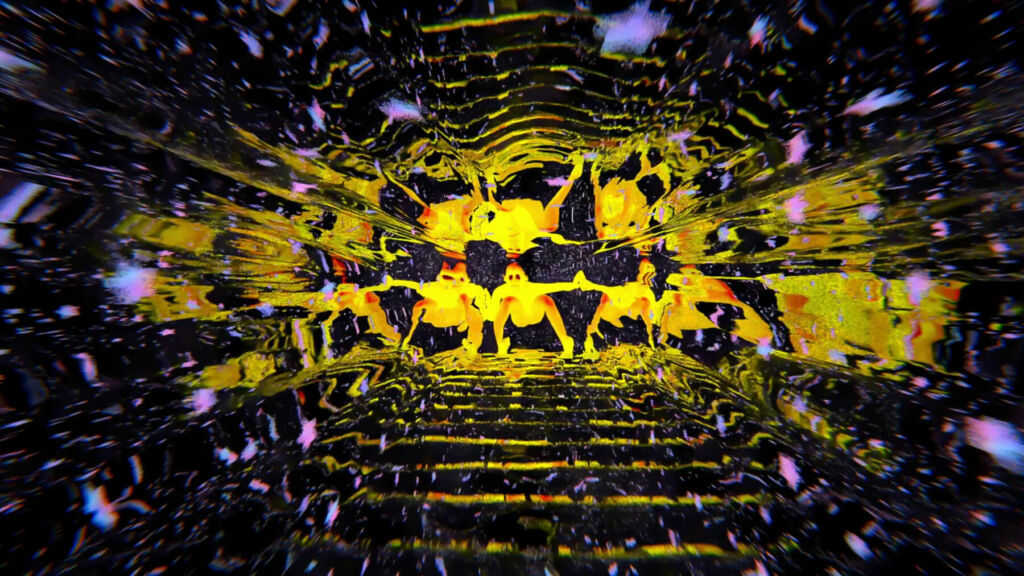
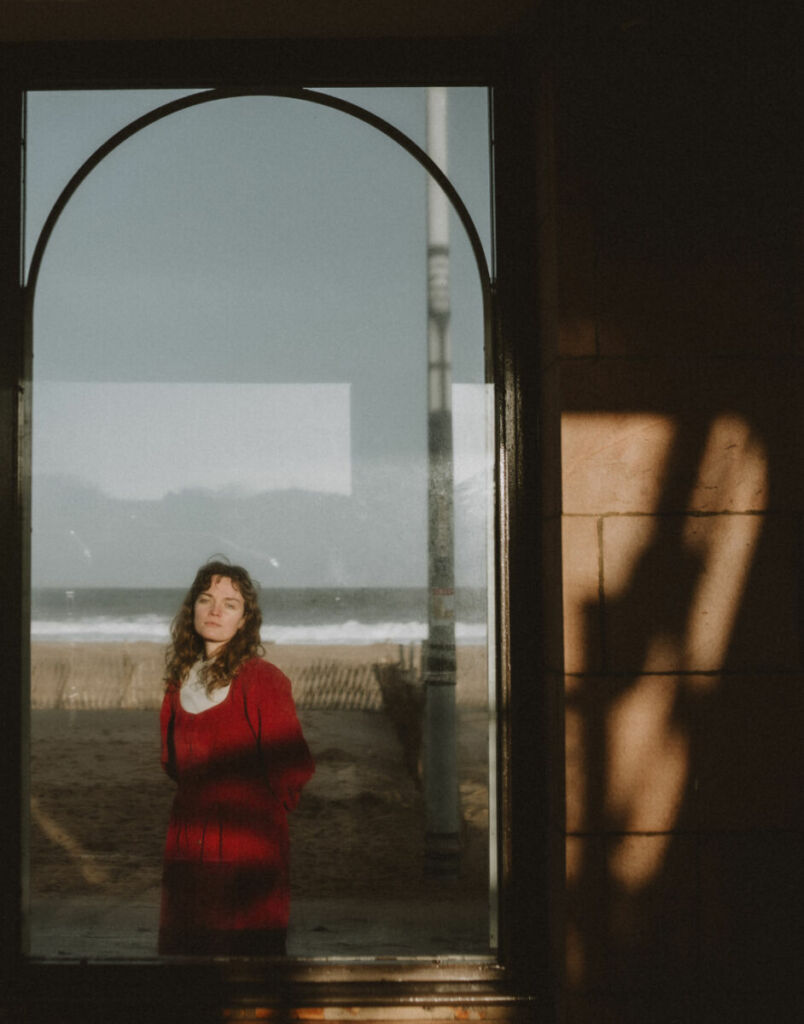
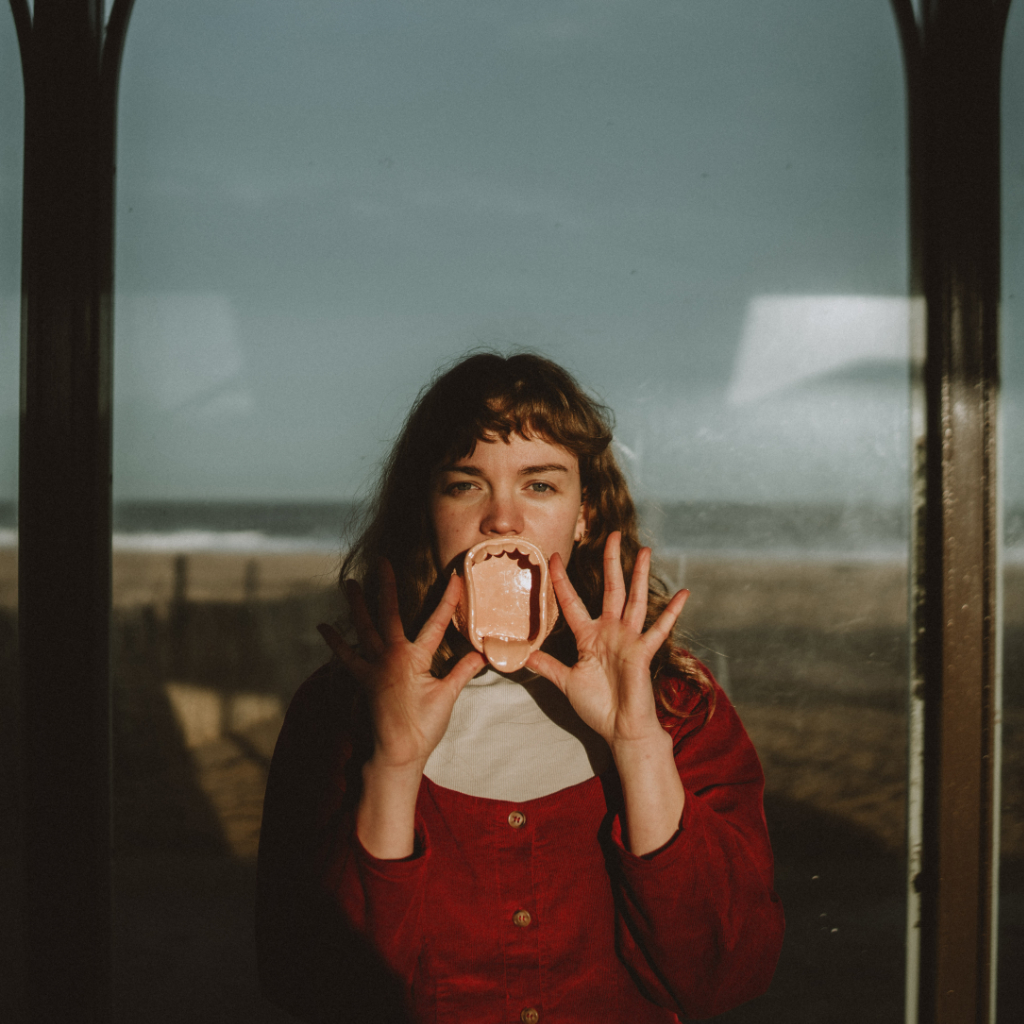
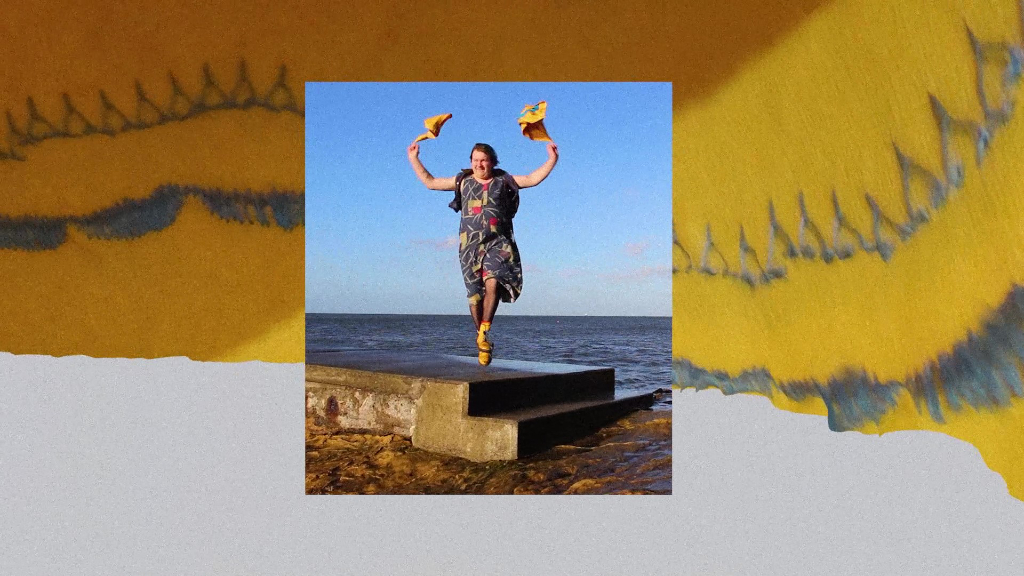
Can you tell us about your journey into music and what inspired you to blend folk with digital and futuristic elements?
Music has always been important to me, and the folk thread has been there throughout – I sang at folk sessions as a teenager, and I have so much love for the songwriting and storytelling traditions I grew up around. I came to my current practice in a roundabout way; when I was studying fine art, I began making sound art and using technology and got interested in work that straddled the borders between music and art. That accounts for my interest in the digital and the experimental side of things – my work now feels like an investigation into different ways I can weave these elements together.
Your music is a blend of various genres, from folk to art pop and ambient. What artists or experiences have been your biggest inspirations in shaping your unique sound?
I’ve always been hungry to consume as much music as possible no matter what the genre is, growing up with my parent’s folk music, going to punk and metal gigs and being in musical theatre performances as a teenager – then getting into electronic music, jazz, noise, as an adult – anything – I just want to experience it all. Because of this, I find it hard to pinpoint specific influences; often, I’ll note small things in the work of others and think about them for a while. Like how a band might handle an abrupt tempo change mid-song in a genre I’ve never written in – I’ll latch onto that kind of thing. It’s not usually a conscious decision, but sometimes I hear myself doing something with a similar character in a song I’ve written and realise after I’ve been taking all these things in.
Your new album, RPG, is described as a glorious homage to humanity’s irrepressible desire to create and to tell stories. Can you elaborate on the central themes of the album?
It’s an album mainly about character creation and world-building – songwriting as a role-playing game – ‘What character is singing this song? How much of myself is in there?’ and this blurring of reality, fiction, and fantasy. It’s about the importance of play, creativity and expression. There’s a lot about escapism through creativity, finding safe places to hide from reality and how that is sometimes necessary for healing and protection. It’s about the natural or ‘real’ world, what separates us from it and what connects us to it. Strangely, it’s the most personal album I’ve made so far; there’s something about speaking through a character that allows more space for vulnerability as a songwriter; that perceived distance gives a voice to some more profound emotional thing.
You’ve mentioned that imaginary landscapes and your growing interest in video games as an art form inspired this album. How did these inspirations shape the sound and storytelling of the album?
Prior to this album, I’d often find myself most inspired when out walking in natural landscapes or around cities – the environment a song takes place in is really important for me as a starting point for songwriting; it shapes the story and the atmosphere for me. During lockdown, this began really. I couldn’t go out and found it hard to write anything. I started playing video games for the first time and was suddenly struck by the immensity of the worlds that could be built and how emotionally connected I felt to these places, characters, and stories.
‘Until Morning’ is the most direct example of this, which was written about not wanting to complete Zelda: Breath of the Wild because it’d mean leaving that place. The game and my relationship with it act as a vehicle for exploring more complex, emotional and self-reflective themes; just because it’s not real physically doesn’t make its emotional impact any less.
The final track, Science And Art, seems to encapsulate the album’s central thesis on the joy of creation. Can you talk about the process of crafting this track and how it serves as a conclusion to the album?
I was walking around a museum and looking at these art objects made thousands of years ago with no practical purpose. I was suddenly overcome with this feeling of joy, knowing that these people were just making art because they felt like it – not to be in a museum or anything, and how crucial that has always been for us. It can be hard to ignore the pressure to be productive 24/7 under capitalism. It’s all about monetising your hobbies; you can be creative, but it has to be ‘for’ something.
I love making things, and this song reminded me to allow myself time to play and explore, just for the sake of it, because I love it. I hope it makes others feel that way too. It serves as a conclusion to the album because it’s a love letter to this creative state of mind, whether you’re doodling in a notebook or carving stones. It’s a thank-you note to those who made the video games and other art that inspired these songs, too. I’m so grateful for the creativity of others.
RPG features a mix of synths, clarinet, and double bass. How did you arrive at this particular blend of instruments, and what do they bring to the album’s overall atmosphere?
My last EP, ‘The Circle Dance,’ featured clarinet by Faye MacCalman and double bass by John Pope, two exceptional musicians I’ve known for a while and wanted to work with for ages. I wanted to invite musicians who were improvisers, who could bring the fluidity that sometimes drum loops and synths can lack, and it worked so well on that previous release I had to bring them onto this one, too. I’m drawn to the combination of instruments because it has this interesting real-world/digital world crossover – they both have a lush physicality, and you can hear the breath, the bowing. They bridge a gap to digital sounds, creating a limbo space.
You’ve described folk as an expansive idea that can include creative coding and game design. How does this broader definition of folk influence your approach to music?
It connects back to this joy of creating for the sake of it – folk, to me, is anybody making things, ad-hoc, at hand because they want to express themselves. Folk is continually expanding. It’s important to keep telling stories of the past and singing those songs, but we have new stories every day and new ways of telling them, and they hold equal weight to me.
What’s next for Me Lost Me? Are there any upcoming projects or collaborations that you’re excited about?
I’m very excited to be composing the music for and performing in “Three Acts of Love”, a run of shows at Live Theatre in Newcastle throughout November and December. It’s a trio of experimental plays exploring different kinds of love, communities and connections. I’m also writing a lot for Me Lost Me; the next album is starting to take shape, and I’m enjoying where it’s going!
What’s your chief enemy of creativity?
The chief enemy of creativity… day-to-day responsibilities? I find it harder to think creatively when I’ve got a lot of admin or a long to-do list, or if I’m worrying about money, etc. That being said, I’ll put all that off if I feel like writing a song, so it’s something I can ignore for the sake of creativity (for a little while, at least)!
You couldn’t live without…
I’m sure I could live without it, but I’d not be very happy if I couldn’t access the countryside, for swimming, walking, or just being surrounded by it.

